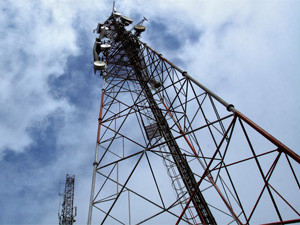
Cellphone companies do not need landowners' permission to erect base stations on private land, as long as they can show they are acting reasonably and there is no alternative location.
The recent Supreme Court of Appeal ruling has left landowners with no recourse but to complain to a court if they do not want a mobile operator to put up a base station on their property. The ruling is likely to affect large tracts of property, such as office parks, complexes, farms and schools.
Under the judgement, a cellphone operator only has to tick all the boxes and show there are no viable alternative locations, that it is acting reasonably, and will pay a fair rate to rent the space.
Clearer picture
The precedent is contained in a ruling handed down by a panel of judges, which dealt with MTN's legal rights to continue to keep a base station on a tract of farm land. MTN lost the case, but this was because it did not follow due procedure, explains Kathleen Rice, director of technology, media and telecommunications at law firm Cliffe Dekker Hofmeyr.
The Supreme Court ruling clarifies the Electronic Communications Act (ECA), which allows licensees to enter public and private land to construct and maintain network facilities, as well as alter and remove them. In doing so, they must keep within the limits of applicable legislation.
There are about 20 000 base stations in SA, based on Vodacom's figure of around 9 000 towers. Neither Cell C nor MTN indicated how many towers they have put up.
MTN SA's GM of commercial legal, Fusi Mokoena, says the ruling clarifies certain key issues around section 22 of the ECA, which is valuable despite it losing the case.
Mokoena says the court found there is no need to have a lease, and there is no need for compensation because use of the land is not "tantamount to expropriation". He adds that the section must be applied with due regard to applicable laws, such as environmental laws and municipal planning laws.
Section 22 gives electronic communications network operators certain powers, which must be applied in accordance with the Promotion of Administrative Justice Act, says Mokoena.
As a result, operators must give the affected landlord notice of its intention to erect a base station on the landlord's property, provide the landlord with the reasons why the tower will be erected on the landlord's site, and give the landlord a chance to make any representation to an electronic communications network operator on that matter, says Mokoena. Exercising rights under the ECA cannot be arbitrary, he adds.
Far-reaching
Rice says the decision, which overturns a previous High Court ruling allowing landowners to refuse access, allows operators to access property as long as they can show they follow fair administrative procedure and give the owner a right of representation.
As a result, towers can be erected despite a landowner's refusal, says Rice. Cellphone companies would have to show they are acting reasonably and there is no alternative location for a tower, she says.
Rice explains that the ruling means property owners do not have complete property rights when it comes to licensees, and that operators no longer need to register servitude over land. A servitude is a right to use or enjoy someone else's property other than through a lease.
In addition, the ruling would apply to all 400 former value-added network services licences, which were converted into electronic communications network service licences after a landmark ruling, says Rice.
Several years ago, JSE-listed Altech took on late communications minister Ivy Matsepe-Casaburri in a lengthy court battle to force government to allow value-added network service providers to build their own networks.
The win paved the way for more than 500 value-added network services to self-provide through electronic network services licences, instead of on-selling Telkom's services.
Share